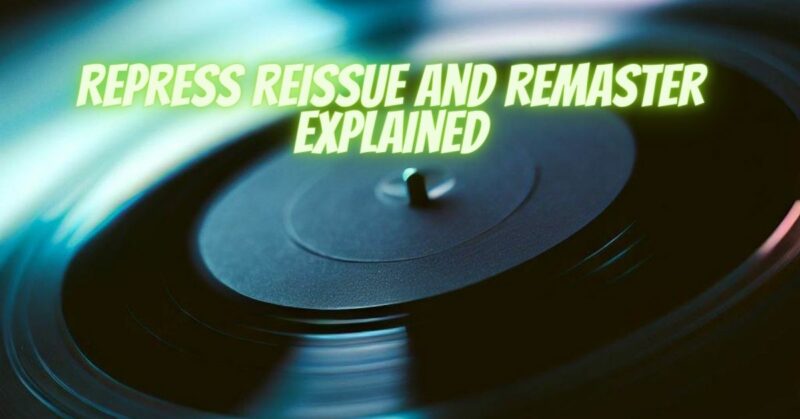When it comes to vinyl records, there are three terms that are often used interchangeably: repress, reissue, and remaster. However, there are actually some important distinctions between these terms.
Repress
A repress is simply a new pressing of an existing record. This means that the record is being made again, using the same master tapes as the original pressing. Repressings are often done to meet demand for a popular record that has gone out of print.
Reissue
A reissue is a new pressing of an existing record, but it may also include some changes. For example, a reissue may be pressed on different vinyl than the original pressing, or it may include bonus tracks. Reissues are often done to celebrate the anniversary of a record’s release, or to make a record available to a new audience.
Remaster
A remaster is a new version of a record that has been digitally remastered. This means that the sound of the record has been improved through the use of digital technology. Remasters are often done to improve the sound quality of a record, or to make a record more consistent with other releases in a series.
So, which term should you use?
If you are simply referring to a new pressing of an existing record, then you can use either “repress” or “reissue.” However, if the new pressing includes any changes, such as being pressed on different vinyl or including bonus tracks, then you should use the term “reissue.” And if the new pressing has been digitally remastered, then you should use the term “remaster.”
Here is a table summarizing the key differences between repress, reissue, and remaster:
| Term | Definition |
|---|---|
| Repress | A new pressing of an existing record, using the same master tapes as the original pressing. |
| Reissue | A new pressing of an existing record, which may include some changes, such as being pressed on different vinyl or including bonus tracks. |
| Remaster | A new version of a record that has been digitally remastered, improving the sound quality of the record. |

